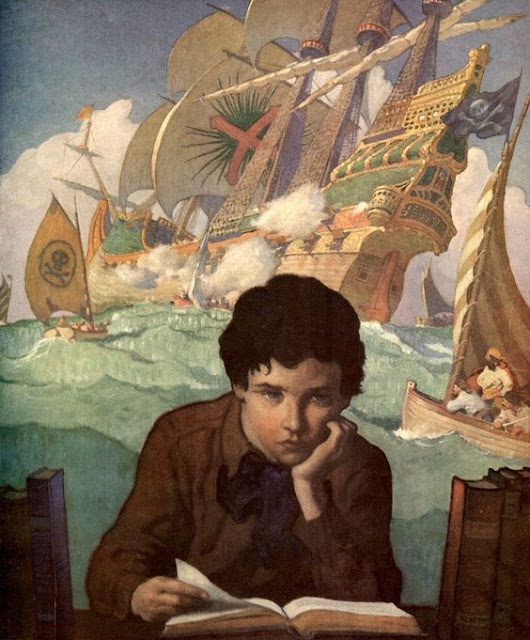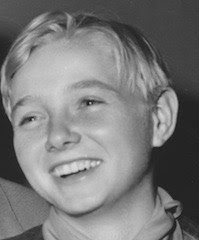CHAPTER 26
The Morning Song
Mister Mac spent the evening in the Meadville Medical Center at Tim’s bedside. Mrs. McIntyre, Aunt Marguerite, and I joined him the next morning. “Tim had a quiet night,” Mac told us.
“How’d you sleep, love? I brought your razor,” Mrs. Mac told him, brushing his cheek.
“Decent enough. They brought me a cot. I’ve spent worse.”
We retreated to a peaceful room reserved for families of folks gravely ill. Paintings of farmsteads and sunny meadows were hung on the wall and lit by their own quiet little lights. Bibles and books of comforting verse rested on the polished cherry tabletops.
“I just saw the doc. They’re moving him up to ‘Guarded.’ Maybe even up to ‘Stable’ by tonight or tomorrow. Swelling’s down.”
“He’s doing better then?” said Mrs. Mac, bright with relief.
“Heard me snoring in the night. Guess that’s doing better.” And we laughed. Mister Mac beamed, an expression I’d never seen before.
I felt important signing for Tim as requested, but soon we were all speaking slowly. For . . . he could hear us, to his great satisfaction.
“Yhou hall . . . sound . . . lhoud.” And we laughed again.
Though he was wrapped in traction, Tim seemed pretty lively, if pale. He could move only his eyes and they were regaining their sparkle. He asked about the game. Yes, we won.
“We play the Eagles again next game,” said Mac, leaning on the bed’s footboard. “Bearcat’s leaving for Montana . . . big family wedding in Glacier. So we need y’ to suit up by Friday.” Mrs. Mac jabbed her husband.
“In the dugout, maybe, not on the field, son.” Her tone sounded like a mother just then, not a teacher in front of her class.
*
I would have given a dollar to hear two conversations that summer of 1992.
The first, the exchange between Mister Mac and Tim when both awoke the morning after the accident. I would probe the matter and gently prod Tim into revealing its content. A perfect eavesdropping opportunity evaded me. In my mind’s ear, though, I cooked up all manner of possibilities. The second conversation would take some planning: I wanted to be there within earshot when the McIntyres told Tim he’d been adopted.
How would they go about it? Who would speak first? Would it take Tim by surprise or had he a clue? His dream of a family coming true. His dream of someone there in the doorway waiting when he came home. Would adoption be such a shock he couldn’t trust his new ear?
It appeared Little League Baseball for “Hawkeye,” “Sidewinder”––or––“Halfway” Hathaway was over in 1992, at least. Good news, though, he seemed to have recovered seventy percent hearing in his left ear. The attending physician thought he was a good candidate for a transplant in the right ear. “Had this boy had some parental attention years ago, he might have been spared all this.”
The specialists and auditory techs called him, “a case you remember. An operation looks promising. Surgeons from the Cleveland Clinic are volunteering to do it or assist.”
“Something they take from a dead guy,” Tim signed of the procedure. “That thing that looks like seashell? They take yours out and stick his in.”
During the week to come, Tim volunteered what happened as he recalled the night of his accident and the days that followed. “Yhou know what?” he asked. “Last night, I woke hup afraid I might lose my hearing again. That something would go haywire hand shut it off. It would be so bad. I try not to think hof hit.”
“Yeah, but they know what ails you now. So they could fix it––your other ear too.”
“So . . . no worry?”
“Right. Think about all you can do from here on out.”
“Ummm.” He nodded with his whole chest and shoulders, careful not to jar the brace he wore to keep things rigid. “You cannot believe how different life his.”
Then he signed: “When I was in the hospital, the first bird I heard was a crow. Then a blue jay. And later that morning, a robin, right outside my window––the nurse told me what it was. I was still locked down in bed or I would have got up to have a look.
Then he signed: “When I was in the hospital, the first bird I heard was a crow. Then a blue jay. And later that morning, a robin, right outside my window––the nurse told me what it was. I was still locked down in bed or I would have got up to have a look.
“The nurse said: ‘There is the robin’s morning song, Timbo. He heard you were here and came by . . . just to say hello, old friend––hello and welcome to my world.’ And do you know what?”
“What?”
“The nurse started to cry. And he was a guy. A bald-headed black guy. I will never forget that, for sure.”
I smiled. “Things are just beginning for you . . . Timbo.”
I could say such safely without tipping any hint of what lay ahead for my friend, Tim Hathaway. Perhaps he’d become Timothy McIntyre in the weeks ahead. But to me and likely to the Panthers, he’ll always be, foremost, Tim “Halfway” Hathaway.
The night we played the Eagles, Tim appeared on the field in his neck brace and uniform, including the pants he lost on his way to first base in practice. Several of the girls from school crowded around and crowed how great he could hear them now. Naming Tim “a miracle from our Lord,” Mary Ann Holzer introduced him to her Mennonite parents, putting in a rare appearance on Summers Run Field. But, unfortunately, they would be disappointed. No game was played.
The Eagles were poised, focused on revenge. Loser of this contest would be eliminated from the playoffs. But we were confident, until Nathe had us huddle in the dugout. Mister Mac stood leaning in the doorway. Uncharacteristic for him as he usually paced around and about, taking care of the lineup, checking the field, and alerting the umpires to Tim’s condition.
Nathe knelt on one knee across from us where he could look each Panther in the eye. He was rolling a baseball in his hand, the one with the missing thumb, long before he spoke. He had our attention. Finally he looked up.
“Boys, Trent Smythe will not be with us tonight. His little sister has been missing for more than a day now. You likely haven’t heard, but they found her body this afternoon in an old refrigerator. Trent won’t be with us tonight.” We knew we’d never forget this moment.
“The Eagles want us to forfeit so they’ll have a break. There’s a regulation we have to have nine men on the field. We’re one shy.”
“Sir, couldn’t we borrow one from Worthe Drug or Longmeier Roofing?” I asked, looking toward Mister Mac who kept track of these matters and the rules. “They’ve got some players hanging around.” Such substitutions had been allowed before in regular play: I filled in once when a team from Cochranton ran short because of an injury, and I helped them finish their game.
“‘Fraid not, Claude,” said Mister Mac. “I asked. The Eagles said they’d protest, since it’s not our regular roster and this is a playoff game.”
There we left it. No pizza at The Shack after the game. None of Uncle Albert’s homemade ice cream on the porch at Summers Run Farm. We would next gather for a funeral to “bring the final curtain down” on what the Tribune sportswriter called, “an unusually bittersweet season. The star that shone over the Pickett Township Panthers winked out last night, the team losing by forfeiture to the Meadville Eagles. In the past few weeks, strangers––not just parents and neighbors––started driving out to the legendary Summers Run Field for a nostalgic Little League Baseball experience.
“Once there, they witnessed play by a scrappy bunch of farm kids and took them to their hearts. Beautifully resurrected from the full-size diamond many old-timers of the area remember, the scaled-down field witnessed some of the purest and best Little League play this writer can recall during his years following local teams. . . .”





